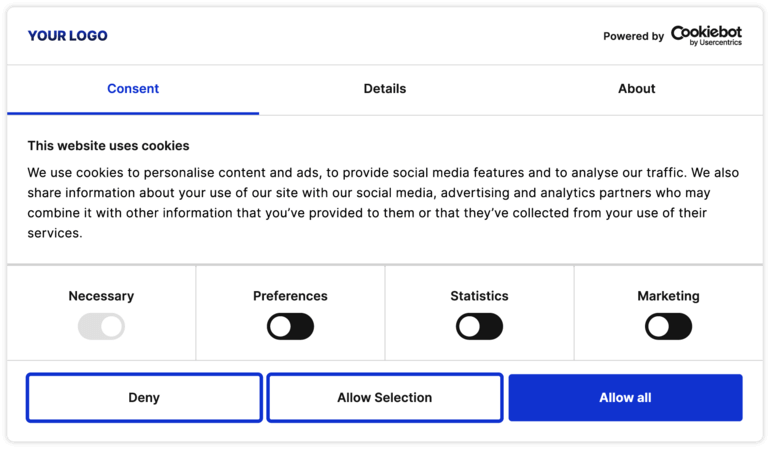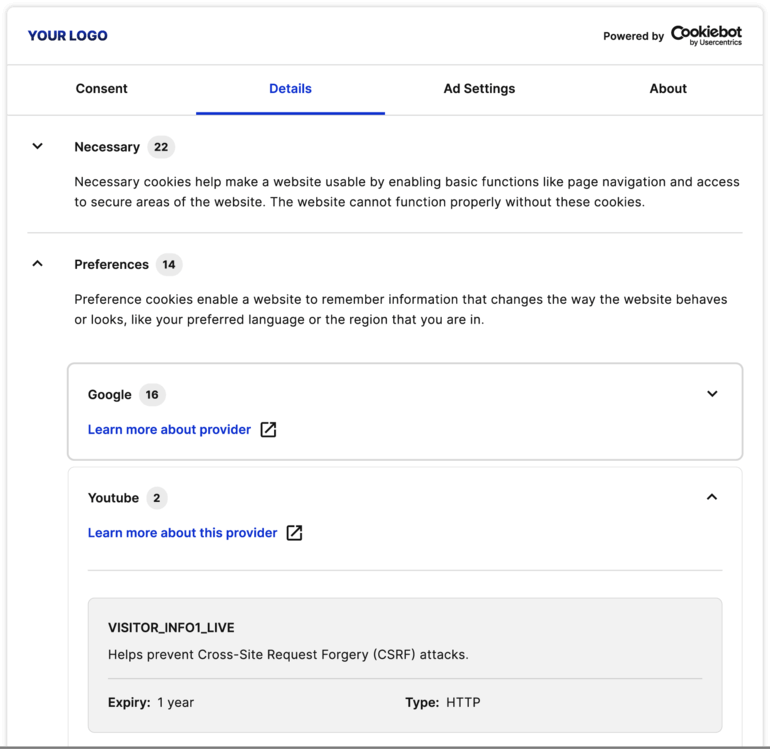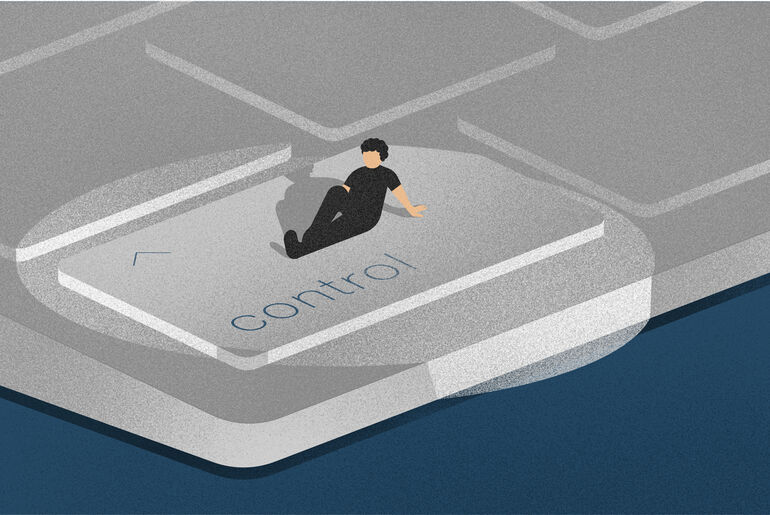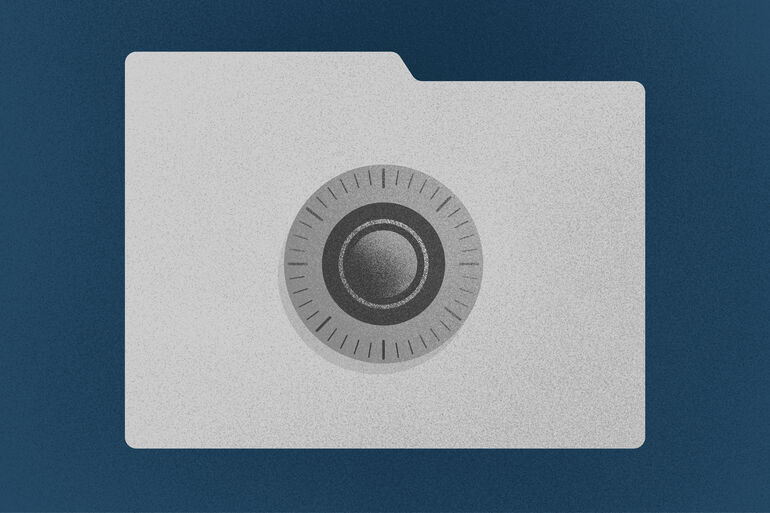Allow Sites to Save and Read Cookie Data

Updated January 17, 2022.
Your website is required nether the Eu's General Data Protection Regulation (GDPR) to let users from inside Europe control the activation of cookies and trackers that collect their personal data.
This is the crux of GDPR cookie compliance – and the future of our digital infrastructures.
In this blogpost, nosotros explain the virtually important things for y'all to know when dealing with EU'south GDPR, cookies and data privacy compliance on your website – and show how Cookiebot consent direction platform (CMP) solves them all for you.
GDPR, cookies and compliance
How to deal with the EU's GDPR and cookie on your website
The General Data Protection Regulation (GDPR) is an European union legislation that governs all drove and processing of personal data from individuals inside the Eu.
Under the Eu'south GDPR, information technology is the legal responsibility of website owners and operators to make sure that personal data is nerveless and processed lawfully.
A website outside of the European union is required to comply with the GDPR if it collects data from users inside the EU.
Even though cookies are mentioned only once in the GDPR, cookie consent is withal a cornerstone of compliance for websites with EU-located users.
This is because one of the near common means for personal data to be collected and shared online is through website cookies. The GDPR sets out specific rules for the use of cookies.
That'southward why end-user consent to cookies is the GDPR's most used legal basis that allows websites to process personal data and apply cookies.
The GDPR requires a website to only collect personal data from users after they take given their explicit consent to the specific purposes of its apply.
Websites must comply with the post-obit GDPR cookie requirements:
- Prior and explicit consent must be obtained before whatsoever activation of cookies (autonomously from whitelisted, necessary cookies).
- Consents must be granular, i.due east. users must be able to actuate some cookies rather than others and non be forced to consent to either all or none.
- Consent must be freely given, i.e. not allowed to be forced.
- Consents must exist as easily withdrawn as they are given.
- Consents must be securely stored every bit legal documentation.
- Consent must be renewed at least once per year. However, some national data protection guidelines recommend more frequent renewal, eastward.k. half dozen months. Check your local data protection guidelines for compliance.
Typically, GDPR cookie compliance is accomplished on websites through cookie banners that allow users to select and take certain cookies for activation rather than others, when visiting a site.

GDPR compliant cookie imprint by Cookiebot CMP.
The European Data Protection Board's (EDPB) guidelines from May 2020 analyze what constitutes valid consent on websites in compliance with the GDPR.
EDPB guidelines state that your website's cookie banner is non immune to take pre-ticked checkboxes andcontinued scrolling or browsing by users cannot be considered every bit valid consent for processing of personal data.
Users must freely requite a clear and affirmative action to betoken their consent in order for your website to actuate cookies and process personal data.
Learn more than nearly what the EDPB Guidelines mean for your website
Learn more than about GDPR and cookie consent
Scan your website for free to see what cookies are in utilize
GDPR cookie compliance exam
Test if your website is in compliance with the GDPR's cookie consent requirements by using the complimentary Cookiebot CMP compliance test.
Just enter the URL of your domain and let Cookiebot CMP acquit a gratis browse of your website to detect all cookies and trackers on the up to v subpages that are included in the costless scan, and whether or not yous alive up to the GDPR's cookie consent requirements.
Don't be alarmed to observe that your website has a lot more unknown cookies, trackers and trojan horses that you thought – they are notoriously hard to know of, considering that –
72% of cookies on websites are loaded in secret by other third-party cookies, making them difficult to know of as a website owner.
18% of cookies on websites are trojan horses, i.e. cookies that are hidden as deep as inside eight other cookies, making them practically incommunicable to find without deep-scanning technology.
50% of trojan horses will have changed between visits, pregnant that they tin can be dissimilar cookies altogether, collecting different information for different agents, and making the legal responsibility of the website possessor to always inform users of the purpose and duration of cookies a headache from the get-go.
Source: Beyond the Front Page, a 2020 enquiry paper on website cookies.
Scan your website with Cookiebot CMP for free today
Learn more almost the European union's GDPR
Learn more about GDPR and cookie consent
Learn more near how to accomplish GDPR compliance
Visit the Eu website on data protection
See the official GDPR police force text

The Net's changing landscapes are shaped past your website's cookies and GDPR.
Cookiebot CMP and GDPR cookie compliance
Cookiebot CMP by Usercentrics is a plug-and-play consent management platform (CMP) - a applied science adult to help balance data privacy and data-driven concern on your website.
Cookiebot CMP is made upwards of an unmatched scanner that detects all cookies and trackers on your domain, and a consent direction solution that automatically controls them all and empowers your end-users with granular consent or opt-out solutions, depending on where in the globe they are located.
Cookiebot CMP and GDPR cookie compliance
When a user from European union visits your website, Cookiebot CMP automatically geotargets their location and presents them with the right solution for GDPR cookie compliance:
- car-blocking of all cookies and trackers for prior consent
- granular, explicit consent choice between iv categories of cookies
- exhaustive declaration of provider, purpose, duration and type of each cookie
- securely documented user consents
- automated renewal requests of user consents


Cookiebot CMP GDPR cookie consent solution that lets users command their own data privacy on your website in full compliance with the GDPR.
The Cookiebot CMP engineering comes with but a few lines of JavaScript on your website, installed directly from the cloud without any need for manual implementation or on-site assistance.
Create your Cookiebot CMP account to go started and let our world-leading consent solution have the hard role out of privacy protection and compliance with GDPR's cookie consent requirements.
Try Cookiebot CMP complimentary for 30 days… or forever if you have a small website.
Browse your website for gratuitous to see all cookies in apply
Learn more nigh GDPR and cookie consent
With GDPR cookie compliance, Cookiebot CMP works for a individual futurity
The Net is a changing landscape.
It was built as a apartment sandbox but has get an uneven land full of user exploitation and privacy invasion that has remained largely unregulated until at present.

In the changing landscapes of the Net, websites are important ecosystems that Cookiebot CMP assist foster balance and protection on.
Your website is a dynamic system that is likewise constantly irresolute, and interacting with the personal, private and sometimes intimate data of real, living people. In the whole Internet, your website might seem small and insignificant, just another domain amongst the billions.
But in fact, your website – any its size – can host hundreds of trackers and trojan horses that feed on your users' individual data without their cognition or consent.
As the Cyberspace has become a fundamental infrastructure in our societies – directing our finances, health industries and our private, social spheres – laws to protect personal data from unconsented drove and use are emerging all around the world.
1 of the biggest and most influential data protection laws today is the Eu's General Data Protection Regulation (GDPR).
Learn more than almost how GDPR cookie compliance works, and how Cookiebot CMP provides the solution to run across all of the GDPR's cookie consent requirements below.

Google Consent Way and Cookiebot CMP
With Google Consent Mode and Cookiebot CMP, you tin can make all your website's Google-services run based on the consent state of your end-users – full GDPR compliance with optimized analytics data and ads revenue through in ane elementary solution.
Cookiebot CMP manages the consent of your website's users, then communicate the consent states to the API running Google Consent Mode who then governs all your favorite services (like Google Analytics and Google Ads) based on the consent state of each individual user on your website.
Did a user not consent to statistics or marketing cookies? Cookiebot CMP tells Google Consent Fashion which and so makes sure that y'all still get aggregate and non-identifying insights into your website'southward performance and the possibility of showing contextual ads instead of targeted ads – respecting user privacy while optimizing your website.
With Cookiebot CMP and Google Consent Style, get instant and uncomplicated GDPR compliance plus optimized analytics data and ads acquirement in ane solution.
Get started with Google Consent Mode
Attempt Cookiebot CMP free for 30 days – or forever if you accept a small website.
Scan your website for free to see what cookies and trackers are in utilize
GDPR cookie consent in detail
By now, you probably got the whole point about how cookies and GDPR are linked: personal information is protected by the Eu's GDPR, and cookies near oft collect information that nether the GDPR is considered personal information, and so you're website is required to comply to the GDPR when using cookies.
Simply is cookies personal information?
Personal data is any information that relates or can in any way be related to an identified or identifiable living person (known in the law every bit a "information subject").
This includes:
- Names
- Abode addresses
- E-mails
- Identification card numbers (such as social security, passport etc.)
- Location information (such as geolocation through a phone)
- IP addresses
- Search and browser history
- Health-related and biometric information
- Indigenous information
- Political convictions
- Religious beliefs
- Sexual orientation
The European union'due south GDPR actually considers the last five points on the checklist above equally a special category of personal data chosen sensitive personal information.
In the rare case that your website processes any of this kind of data, the GDPR requires you to comply with specific processing conditions.
Visit EU on personal data and GDPR

GDPR and cookies: how balanced are these in your website's dynamic system?
The Eu'due south GDPR on cookies
Cookies are small-scale text files that are stored on your terminate-users' browsers, as you probably know.
What you might not know is that cookies most often incorporate an identifier (known every bit a "Cookie ID") that is in itself considered personal information under the GDPR.
Yes – under GDPR, cookie IDs are considered personal information.
A cookie ID is the identifier that is included within most cookies when attack a user's browser. It is a unique ID that allows your website to recollect the private user and their preferences and settings, when they return to your website.
But cookie IDs often follow users around on the Cyberspace and tin be used to generate comprehensive profiles on individual people that are and so sold to digital advert agencies and used for behavioral marketing.

Third-political party cookies from Google detected and controlled past Cookiebot CMP.
GDPR requires that your website only collects personal data from your users for specified, explicit and legitimate purposes, and that you obtain their clear and affirmative consent earlier doing so.
In your everyday work with your website, this GDPR cookie requirement means that y'all non just need to know what cookies and trackers are in operation on your domain, but besides why they are there.
- Where practice the cookies come from, i.e. who is their provider?
- What kind of data do the cookies collect or process? Is it personal information? If so, do you brand certain to obtain prior consent earlier they are activated and begin collection?
- What is the purpose of the cookie'southward data collection? For lawful personal information drove, legitimate purposes must be stated as part of the information that you give to your end-user, or their consent tin exist considered invalid.
- What type of cookie or tracker is it? The technical details are important every bit part of a valid consent, as this is part of the information requirement.
- How long is the cookie active for, i.east. for how long will it exist stored on your users' browsers?
EXAMPLE - cookies and GDPR
Your website uses a plugin from a tech company like Google or Facebook. This could exist Google Tag Manager or a comment/similar section on one of your subpages from Facebook.
Yous will now have cookies on your website.
They are third-party cookies because they practise not come from your own website merely are set on a user'southward browser from Google or Facebook.
These cookies will not be necessary cookies, i.e. non white-listed and exempt from the GDPR, simply rather will need the explicit consent of users earlier your website is allowed to actuate them.
Even though these tertiary-party cookies come from companies similar Google or Facebook, the legal responsibility for GDPR cookie compliance is still yours as the website possessor.
Granular consent, different cookies and GDPR
By know you probably have no incertitude – yes, your website has cookies, GDPR requires y'all to control them and you're looking to get compliant.
Simply very probable your website has more one type of cookie. This is of import, as the GDPR cookie requirements are different for the dissimilar types of cookies and tracking technologies in use on the Net.
The EU's data protection legal regime has the General Data Protection Regulation (GDPR) every bit its basis, simply is as well fabricated up of legal precedents similar the case of Planet49, the ePrivacy directive on electronic communications (Eu cookie constabulary), and guidelines from both national information protection agencies and the European Board of Data Protection (EDPB).
Altogether, they grade the specific requirements that websites who have users from within Europe must comply with today.
The sum of this legal government is that in the EU, consent must be given past users in an explicit, unambiguous mode; their consent must be granular; their consent must be given freely and their consent must not exist nudged or given in return of services.

Your website is a dynamic system that must balance the GDPR and use of cookies at the same time.
Total GDPR cookie compliance means that your website must –
- Know of all cookies and trackers in operation,
- Inform users of cookies and their duration, purpose and provider,
- Offer users a choice of granular consent, i.eastward. the possibility of activating some cookies rather than others on your website,
- Enable users to withdraw their consent as easily as they gave it,
- Certificate all consents in a secure and encrypted manner,
- Ask for renewed consent at least once every 12 months.
For your website, this means that you lot need to enable your end-users to choose between the different types of cookies your website has.
In compliance with the GDPR, cookies fall into four categories on Cookiebot CMP –
- Necessary cookies that are most often your website's own (starting time party) and important to have activated at all times in order for your domain to function properly. These will most ofttimes exist session cookies that only final as long as the user's visit to your site. Merely strictly necessary cookies tin be white-listed to be exempt from GDPR cookie consent.
- Preference cookies that call back user choices such equally linguistic communication settings or currency on your website.
- Statistics cookies that nearly often come up from third-party services such as analytics software that you implement on your website.
- Marketing cookies that almost always come from third-party tech or ad companies for the purpose of serving advertisement to your users or collect personal data from them for future marketing purposes.
Nether the EU'due south GDPR, cookies that are not strictly necessary for the basic function of your website must only be activated after your terminate-users take given their explicit consent to the specific purpose of their operation and collection of personal information.
With the Cookiebot CMP deep-scanning technology, all your website's cookies will be detected, and their technical details explained to yous and your users in a simple cookie declaration that provides all the required information for full GDPR cookie compliance.
And with Cookiebot CMP, your website will ever be informing its users with accurate and updated information on how it collects and shares their personal data.
Try Cookiebot CMP costless for 30 days… or forever if you take a small website.
Scan your website for gratis to see what cookies are in employ
Cookie policy and GDPR
Your website needs to take a cookie policy that is easily accessible for your stop-users.
Under the GDPR, a cookie policy must inform users of –
- What information yous collect
- What you practice with their information
- How you protect their information
- If yous disembalm any data to 3rd parties
- How yous store their data
- How users may access, migrate, request rectrification, restriction or deletion of data
Cookiebot CMP automatically generates a cookie proclamation for your website once it has scanned your domain.
This forms the basis of your cookie policy, equally it contains near of the information that is required by the Eu'due south GDPR in a cookie policy.
A GDPR cookie policy can hands exist integrated with your website's existing privacy policy.
Meet the Cookie Annunciation and Privacy Policy of Cookiebot CMP for examples on how to draft your website's own and what information you need to include.
A cookie policy is a dynamic thing, since your website is a dynamic system. Cookies modify and so must your cookie policy.
Cookiebot CMP automatically generates a cookie declaration which ensures that your cookie policy is e'er up to date. This will salvage yous considerable amounts of fourth dimension spent on drafting and keeping it updated yourself.
Learn more almost how to generate a GDPR compliant cookie policy for your website
Cookiebot CMP and GDPR cookie compliance
All right, you fabricated it to the end of a long article on GDPR and cookie consent. Way to go!
Cookiebot CMP has been in operation since 2014 and is a matured technology that ensures compliance with the European union's GDPR and similar data protection laws around the world through our unmatched scanning engineering and consent management solution.
The Cookiebot CMP applied science takes the difficult part out of compliance and privacy protection, and works every mean solar day to make privacy protection a uncomplicated and polish solution today to guarantee a man future on our digital infrastructures tomorrow.
Sign upwards to Cookiebot CMP today and try free for thirty days… or forever if your website has less than 100 subpages.
See our Pricing Plans
See our Features
Need Assistance with Cookiebot CMP?
Learn more about cookie consent

Protect user privacy on the ever-changing digital landscapes with Cookiebot CMP for a compliant balance between GDPR and cookies.
FAQ
How to go website cookies to be GDPR compliant?
Under the EU's GDPR, cookies on your website that process personal data from individuals inside the EU are only allowed to be activated after the end-user has given their consent to practice so. That means, any cookie on your website, that is not strictly necessary, and process personal data must exist deactivated until the end-user accepts its activation.
Learn more than most GDPR and cookie consent
What does the GDPR say about cookies?
Under the EU's GDPR, cookies are only mentioned in one case, notwithstanding the Eu-wide legislation sets clear rules for how personal data is allowed to be candy past websites, chief amongst the rules are the necessity of obtaining explicit consent from end-users before collecting their data – so, any cookie on your website that processes personal data must remain inactive until the user consents.
Learn more virtually compliance with the EU's GDPR
What is a GDPR compliant cookie banner?
A GDPR compliant cookie banner is an interactive module that informs your users of all cookies and trackers in operation on your website, their purpose, duration and provider, and enables users to give their explicit consent to some, none or all cookies by ticking boxes or sliding controls and pressing a push button. Information technology is vital for GDPR compliance that cookie banners do not have pre-ticked checkboxes or forces users into a choice of accepting all or none in return for services.
Learn more about GDPR compliant cookie banners hither
What is cookie policy under GDPR?
A GDPR compliant cookie policy informs your users of what data your website collects, what purposes yous utilize this information for, which third parties you share their data with, who is the provider of the cookies, how you lot store their data and ensure its protection, and how users may admission, migrate, request rectification or deletion of their data. Your website's cookie policy must be written in an piece of cake-to-sympathise linguistic communication and exist easily accessible for your users.
Learn more than virtually GDPR cookie policies here
Resources
Learn more almost GDPR and cookie consent
Learn more nearly the ePrivacy Directive (EU cookie law)
Learn more about Planet49 and valid cookie consent in the Eu
Visit European union'south official website about data protection
Run into the official GDPR law text
See Beyond the Front end Folio, a 2020 study on website cookies
Notice how behavioral advertisement on the Internet works
Visit the European Data Protection Board'south website
Source: https://www.cookiebot.com/en/gdpr-cookies/
0 Response to "Allow Sites to Save and Read Cookie Data"
Postar um comentário